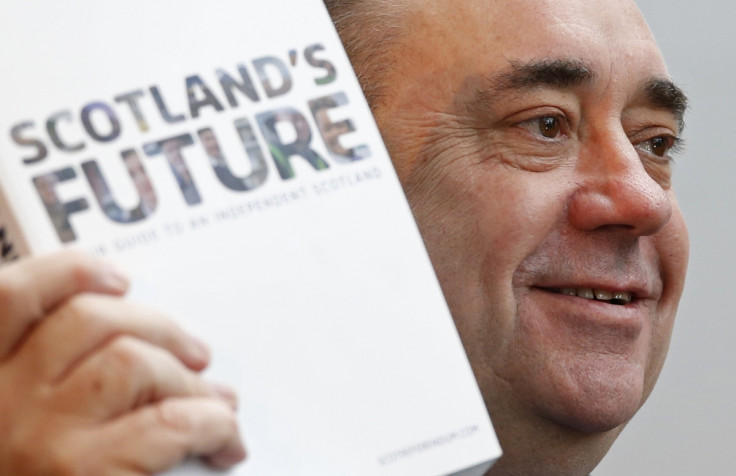Scottish Independence: How David Cameron Can Beat Alex Salmond

It's trite and offensive to compare Scottish National Party leader Alex Salmond to the likes of William Wallace and Robert the Bruce, lauded warriors of Scottish history who fought hard for their beloved country's independence.
Not because of any cultural clichés, but because there is one enormous difference between Salmond and his forebears – the latter actually wanted independence.
Salmond's version of independence from the United Kingdom looks remarkably similar to a Scotland that belongs to it.
As well as keeping the British monarchy, open borders, and being a member of the European Union, Salmond wants a currency union between the UK and Scotland so he can keep on using the pound.
It has been pointed out by none other than Mark Carney, governor of the Bank of England, that a currency union needs fiscal integration – or at least strict fiscal rules – governing the members of such a union.
What this means is that in the event of independence, Scotland would not control wholly its monetary or fiscal policy.
It would have to stick within agreed rules on tax and spending, around which there are already massive question marks given Scotland's reliance on public spending and declining revenues from the ever-slimming North Sea oil and gas cash cow.
This means greater austerity for Scotland, more terms dictated by Westminster under a currency union, no power to devalue the currency if it ever needed to, and little room to manoeuvre fiscally in the event of a crisis.
Salmond's version of an independent Scotland is one that's less free than it is now. And this is where UK Prime Minister David Cameron should strike if he really is serious about keeping Scotland in.
He should bring what his Conservative party supposedly stands for to the front of the Scottish independence debate – decentralisation and localism.
Cameron must offer greater devolution for Scotland to control more of its own finances, as well as extra powers for local councils all over the UK so they can mould individual solutions to their communities' unique problems.
Further devolution offers a significant degree of independence without the uncertainty and risks to the Scottish economy a real split would carry; it keeps Scotland within Westminster's protective fiscal and monetary policy framework; and betters all of what Salmond is holding up as the Promised Land for nationalists.
© Copyright IBTimes 2025. All rights reserved.






















